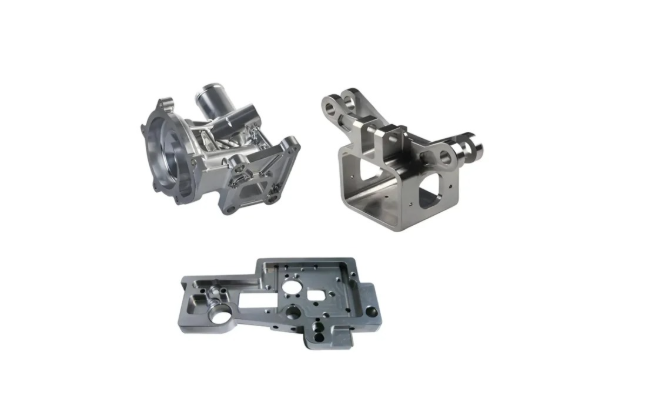Stainless steel CNC machining has become a game changer in industrial applications, offering unmatched precision and durability. Companies like Yijin Hardware are leveraging this advanced machining process to enhance production and ensure superior quality. As industries strive for efficiency, understanding the benefits of stainless steel CNC machining is crucial. This article explores how it improves production, reduces waste, and ensures longevity, making it an essential choice for modern manufacturing.
Overview of Stainless Steel CNC Machining
Stainless steel CNC machining involves the use of computer numerical control technology to fabricate stainless steel components with high precision. This technique employs advanced machinery to execute cutting, milling, and drilling processes. CNC machining applies programmed software to control the machining tools, ensuring production accuracy.
Stainless steel is favored in many industrial applications due to its strength, resistance to corrosion, and longevity. Material selection plays a critical role in the machining process. Stainless steel types include 304, 316, and 420, each offering distinct properties suited for specific applications. Choosing the appropriate type enhances the machining efficiency and final product quality.
The ability to produce complex geometries with tight tolerances sets stainless steel CNC machining apart from traditional machining methods. The automation involved reduces human error, promoting consistent results. This advanced machining process significantly improves productivity, especially for bulk production runs, while minimizing waste.
Utilizing stainless steel in CNC machining benefits industries such as aerospace, automotive, and medical equipment manufacturing. The combination of stainless steel’s durability and CNC machining’s precision results in components that meet strict quality standards. This synergy between material and technique establishes stainless steel CNC machining as a cornerstone in modern manufacturing practices.
Advantages of Stainless Steel in Industrial Applications
Stainless steel offers multiple advantages in industrial environments, making it a preferred material for various applications.
Corrosion Resistance
Stainless steel exhibits remarkable corrosion resistance, even in harsh environments. Its chromium content forms a passive layer of chromium oxide that protects the steel from rust and corrosion. This characteristic is particularly useful in industries like food processing and pharmaceuticals, where cleanliness is critical. Components made from stainless steel maintain their integrity over time, reducing the need for frequent replacements and maintenance.
Durability and Strength
Stainless steel is known for its exceptional durability and strength. It withstands high levels of stress and extreme temperatures without deforming or breaking. This property makes it suitable for demanding applications in aerospace, automotive, and manufacturing sectors. Additionally, stainless steel’s ability to retain structural integrity under pressure contributes to safety and reliability in industrial processes.
Aesthetic Appeal
Stainless steel possesses a sleek, polished appearance that enhances the aesthetic quality of industrial products and equipment. Its visual appeal, combined with resistance to staining and ease of cleaning, makes it a popular choice for applications where appearance matters, such as architectural elements and high-end consumer goods. The reflective surface of stainless steel can help create modern, clean environments that align with design standards in various industries.
CNC Machining Process
CNC machining is a precise manufacturing method that utilizes computer-controlled tools to create stainless steel components. The process involves three primary operations: cutting, milling, and drilling, which enable the fabrication of intricate shapes and designs.
Precision and Accuracy
CNC machining delivers high precision and accuracy in manufacturing. Advanced computer numerical control technology allows for the production of components with tolerances as tight as ±0.005 inches. This level of precision is crucial for industries that require exact specifications, such as aerospace and medical device manufacturing. Consistency in production is maintained across multiple units, ensuring uniformity and quality.
Cost-Effectiveness
CNC machining proves cost-effective due to its automation and efficiency. By minimizing human intervention, the risk of errors decreases, reducing waste materials and rework time. The capability to produce complex geometries in fewer steps also contributes to lower labor costs. Overall, the initial investment in CNC machinery yields significant returns through improved productivity and reduced operational expenses over time.
Applications of Stainless Steel CNC Machining
Stainless steel CNC machining finds extensive use across several industries due to its strength, durability, and precision.
Aerospace Industry
In the aerospace industry, stainless steel CNC machining produces critical components such as brackets, housings, and various fasteners. The ability to achieve tight tolerances ensures safety and reliability in flight operations. Stainless steel’s corrosion resistance is essential for components exposed to harsh environments, enhancing both performance and lifespan. Materials like 316 stainless steel often get utilized for their superior resistance to saltwater and chemicals.
Medical Devices
Medical device manufacturing relies on stainless steel CNC machining for parts that require extreme precision and cleanliness. Items such as surgical instruments, implantable devices, and diagnostic equipment benefit from the accuracy and repeatability of CNC processes. The use of biocompatible stainless steel, like 304 and 316, meets stringent medical standards regarding corrosion resistance and fatigue strength. Adoption of CNC machining ensures high-quality production of items necessary for patient safety.
Automotive Sector
In the automotive sector, stainless steel CNC machining fabricates components such as exhaust systems, brackets, and connecting rods. The durability of stainless steel withstands high temperatures and corrosive environments, making it ideal for car parts. Machining processes create complex engine components with tight tolerances, optimizing vehicle performance and safety. Manufacturers often choose stainless steels for their aesthetic qualities, enhancing the visual appeal of automotive designs.
Conclusion
Stainless steel CNC machining stands out as a transformative force in industrial applications. Its precision and efficiency not only improve production but also ensure the longevity and reliability of components. This advanced machining process meets the stringent demands of various sectors, from aerospace to medical devices. By leveraging the unique properties of stainless steel, manufacturers can achieve superior quality while minimizing waste and operational costs. As industries continue to evolve, the role of stainless steel CNC machining will remain crucial, driving innovation and excellence in manufacturing practices.















